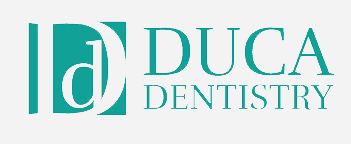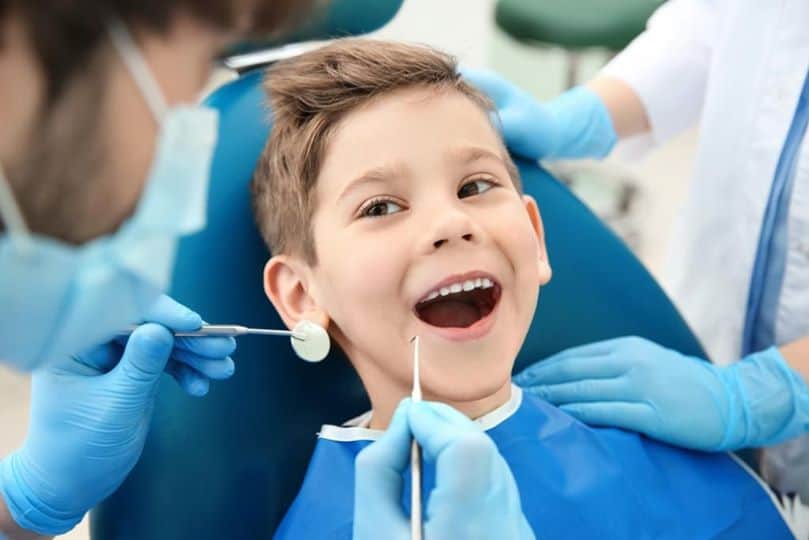Pediatric Dentistry
A child’s first visit to the dentist should be enjoyable and positive. The more you and your child know about the first visit, the better you will feel. Children are not born with a fear of the dentist, but they can fear the unknown. Our office makes a practice of using pleasant, non-frightening, simple words to describe your child’s first dental visit and treatment. We want you to feel at ease from the moment your family arrives at our office.
According to the American Academy of Pediatric Dentistry (AAPD), children should visit the dentist by their first birthday. It is important that your child’s newly-erupted teeth (erupting at 6-12 months of age) receive proper dental care and benefit from proper oral hygiene habits right from the beginning.
“Cannot say enough nice things about Dr. Duca. He’s very mindful of his patient’s comfort and explains everything in detail. He’s very skilled at what he does and makes you feel at ease. I would highly recommend him as your family Dentist!!!”
When New Teeth Arrive
Your child’s first tooth erupts between ages 6-12 months and the remainder of their 20 primary or “baby” teeth typically erupt by 3 years of age. During this time, gums may feel tender and sore, causing your child to feel irritable. To help alleviate this discomfort, we recommend that you soothe the gums by rubbing a clean finger or a cool, wet cloth across them. You may also choose to make use of a teething ring. The use of pediatric approved analgesics can also be helpful.
Adopting Healthy Oral Hygiene Habits
As new teeth erupt, examine them every two weeks for lines and discoloration caused by decay. Remember that sugary foods and liquids can attack a new tooth, so take care that your child brushes their teeth after feeding or eating. We recommend brushing four times a day for optimal oral hygiene: after breakfast, after lunch, after dinner, and at bedtime. Brushing can be fun, and your child should brush as soon as the first tooth arrives. When a baby’s tooth erupts, parents should brush the tooth with a soft-bristled toothbrush and a pea-sized amount of toothpaste. For children younger than two, do not use fluoride toothpaste unless advised to do so by your dentist or other health professional. We suggest reviewing proper tooth brushing procedures with your child.
Flossing is also a part of good oral hygiene habits, and your doctor will discuss with you the right time to start flossing. If you notice signs of decay, contact your dentist immediately.
In summary, we guide our young patients from birth to adulthood; we care for all their dental needs along the way and beyond.
Get In Touch
Call
(973)278-8181
lduca@ducadentistry.com
Address
347 Valley Road Clifton, New Jersey 07013
Hours
M 9-4 T 1-8p
W 9-4 Th 9-4
Closed Friday, Saturday and Sunday

